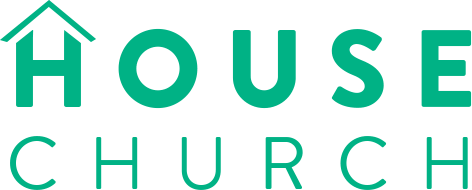Foundation Series: The Book of Common Prayer
 Words are powerful things. Have you ever found yourself singing along with a song on the radio, and suddenly you stopped to think about the words you were singing and thought, “This is terrible!” I do it all the time, and I’m constantly taken aback by how much the words we sing, pray, and read can sink into our brains without us even knowing it. In fact, over time, these words have a tendency to change the way we behave. We subconsciously begin viewing people differently, perhaps with less dignity, because of something as simple as song lyrics. In contrast, if we focus our minds on other words (for instance, the great book on tape I’m currently listening to), we can find ourselves transformed in a much different direction.
Words are powerful things. Have you ever found yourself singing along with a song on the radio, and suddenly you stopped to think about the words you were singing and thought, “This is terrible!” I do it all the time, and I’m constantly taken aback by how much the words we sing, pray, and read can sink into our brains without us even knowing it. In fact, over time, these words have a tendency to change the way we behave. We subconsciously begin viewing people differently, perhaps with less dignity, because of something as simple as song lyrics. In contrast, if we focus our minds on other words (for instance, the great book on tape I’m currently listening to), we can find ourselves transformed in a much different direction.
If you’ve been following along with us at The Parish, you’ve probably noticed how much we’ve mentioned something called The Book of Common Prayer (BCP, for short). Personally, the first few times I heard people reference the BCP, I thought it sounded strange, mysterious, maybe even heretical! Why, after all, do we need any other book than the Bible? As it turns out, the Book of Common Prayer is actually an incredible resource, used by Christians around the world for centuries. If we understand it and use it correctly, it can help shape our thinking, and even our entire lives, in a profound way.
To understand the BCP, you have to go back to its roots, which lie way back in the 16th Century Reformation. England was engaged in a Civil War, and each new ruler brought with them a new religious preference. Eventually, when the dust settled, England had officially separated its churches from Rome. Instead of completely overhauling their churches into entirely new and independent congregations, as their fellow reformers in Europe had done, the English chose to “reform” their existing churches. In doing so, they modeled their churches as closely as possible to the Scriptures and the traditions of the primitive church. The result was, of course, the Anglican Church.
At the time, these churches were diverse in their beliefs and worship practices. To encourage theological clarity and unity among these churches, in 1549 Thomas Cranmer (the Archbishop of Canterbury) wrote and compiled the very first Book of Common Prayer. This book laid out what each church should say and do in weekly services, daily prayer, weddings, funerals, etc. He used the Bible as his guide; in fact, it is said that 80% of its text is taken from Scripture. The result was a collection of prayers, songs, and scripture readings that helped focus the worship of the Anglican Church for the next 450 years.
Over the last five centuries the Anglican Church spread around the globe, and they brought the BCP with them. Today, in dozens of languages and cultures, it guides the worship of approximately 80 million people worldwide. Along with the King James Version of the Bible and the works of Shakespeare, the BCP is one of the three most influential books in the formation of the English language. In fact, you already know more of the BCP than you think:
- “Speak now or forever hold your peace.”
- “Till death do us part.”
- “Earth to earth, ashes to ashes, dust to dust.”
All of these phrases, and many more, originated from the language of that first Book of Common Prayer, written all those centuries ago.
It is fascinating to me that, in contrast to the reformers in Europe, the Anglican Church chose to unify around a form of worship, not some grand theological statement. Instead of drawing theological lines and saying, “you’re in, but you’re out,” the English reformers chose another path. They believed that, just like the songs we listen to on the radio, if we pay attention to the words we pray, sing and read, over time the Holy Spirit would ensure that we are transformed into the right way of thinking. They started with worship, invited everyone to attend, and trusted that gradually God would change the way people believe and behave.
That, I hope, is what will happen at The Parish as well. As we meet, pray, sing, read, and learn, we will use the BCP as a guide. Over time, our hope is that as a community we will be transformed by focusing on the truths of Scripture. In our daily prayer and corporate worship, we will continually be challenged and formed into a radically different way of thinking and living.
Obviously, we’re just scratching the surface of the BCP. If you’d like to learn more about the Book of Common Prayer, there are several great resources available online, but a good place to start is (of course) Wikipedia. Stay tuned to The Parish Blog, and each week we’ll be using the BCP to focus us on Scripture and help continually form us into a Christ-like people.

